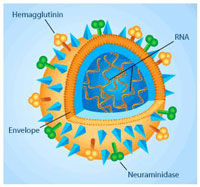Vitamin K may protect against developing non-Hodgkin's lymphoma, say Mayo Clinic researchers
Advertisement
In the first study of vitamin K and non-Hodgkin lymphoma risk, researchers at the Mayo Clinic campus in Minnesota have found that people who have higher intakes of vitamin K from their diet have a lower risk of developing Non-Hodgkin lymphoma.
At the 101st Annual Meeting of the American Association for Cancer Research (AACR), the researchers report that the risk of developing Non-Hodgkin lymphoma was approximately 45 percent lower for participants who had vitamin K intakes in the top quartile of intake in the study (>108 ug/day), compared to participants who had intakes in the bottom quartile. Mayo Comprehensive Cancer Center are studying the connection between diet and Non-Hodgkin lymphoma risk, and they became interested in a potential role for vitamin K. Vitamin K appears to be important in biological processes, including inhibition of inflammatory cytokines thought to play a role in Non-Hodgkin lymphoma, as well as pathways involved in cell cycle arrest and cell death.
"These results are provocative, since they are the first work we have done on the connection between vitamin K and Non-Hodgkin lymphoma, and this is a fairly strong protective effect," says the study's lead investigator, James Cerhan , M.D., Ph.D., a cancer epidemiologist. "However, as with all new findings, this will need to be replicated in other studies."
The Mayo study enrolled 603 patients who were newly diagnosed with Non-Hodgkin lymphoma as well as 1,007 matched cancer-free "control" participants. Researchers asked the participants to answer a food questionnaire about their usual intake of over 120 food items two years prior to their cancer diagnosis or enrollment into the study (controls). They also asked about use of a variety of supplements. Vitamin K intake was estimated from this data.
While there was a clear trend showing that a greater intake of vitamin K from dietary sources was associated with a lower risk of Non-Hodgkin lymphoma, the use of vitamin K supplements presented a slightly different picture. Increasing intake of vitamin K from supplements did protect against Non-Hodgkin lymphoma, but reached a point where the highest intake offered no reduction in risk. "The significance of this finding is unclear," notes Dr. Cerhan, "but suggests that taking high doses of supplements is unlikely to be helpful." Dr. Cerhan also notes that people taking certain oral anticoagulants or seizure medications should closely follow their physician's dietary recommendations with respect to vitamin K intake, since vitamin K can interfere with these drugs.
"Whether the protective effect we observed is due to vitamin K intake, or some other dietary or lifestyle exposure, cannot be definitely assessed in this study," notes Dr. Cerhan. "But these findings add to a lot of other data that support a diet that includes plenty of green leafy vegetables in order to prevent many cancers as well as other diseases."

























































